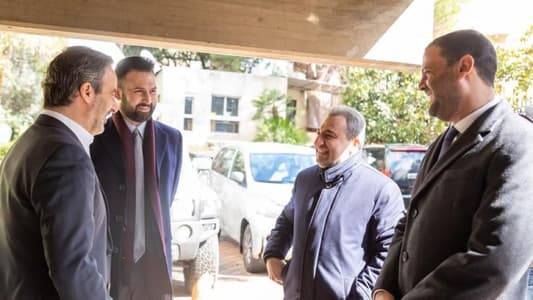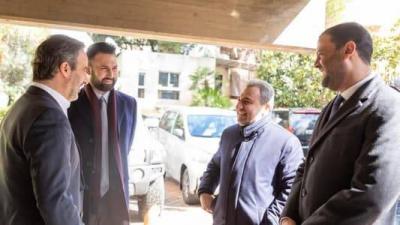The President of the Progressive Socialist Party, Walid Jumblatt, broke the political stagnation with his presidential initiative, launching a quest for a centrist president (neither from the 8th nor the 14th alliance). This move was further evidenced by clear indications of his new direction, from threatening to boycott election sessions if the current approach continues, to meetings with Hezbollah, President Nabih Berri, and MP Gibran Bassil. He also sent MP Wael Abou Faour to Saudi Arabia and engaged with many political forces, especially the Lebanese Forces. Additionally, MP Taymour Jumblatt met with Patriarch Mar Bechara Boutros al-Rahi, Grand Mufti Sheikh Abdul-Latif Deryan, and Sheikh al-Aql Sami Abou al-Muna, proposing three consensual names for the presidency: Army Commander Joseph Aoun, Salah Hnein, and Jihad Azour.
This direction was interpreted as a abandonment of the candidacy of MP Michel Moawad, who expressed his displeasure, arguing that he was not consulted beforehand. He considered that the centrist president is the true choice of the Mukhtara and not a candidate of the sovereign team. Jumblatt's realism is clear and explicit in his bias towards a settlement. The man, polished by political experience and a keen reader of history, recognizes that the current phase cannot endure futile confrontations or adventures that lead only to renewed tensions and wars that have long plagued the country. He has stated explicitly several times that Hezbollah is a Lebanese party, and those who think they can take away its weapons without a defense strategy are deluded.
Jumblatt also expressed his frustration with some reviving ideas about federalism and financial decentralization, which he views as forms of division. As a son of the Taif era following 15 years of civil war, which was merely an expression of the historical anxiety among Lebanese regarding the governance formula in Lebanon, he opposes these notions.
Jumblatt has undoubtedly paved the way for a third option towards Baabda, between Moawad and the head of the Marada Movement, Sleiman Frangieh. He is not fixated on the three names he proposed exclusively, as sources from the "Progressive" movement confirmed to MTV. Any third candidate that enjoys the support of key parties and can secure a majority to assume power is a valid option. In this context, the visit of the head of the Democratic Gathering bloc, MP Taymour Jumblatt, to Moawad yesterday, as sources indicate, was meant to affirm that the suggested initiative does not signify abandonment but rather opens a path to save the country, as the suffering of the Lebanese has reached unbearable limits and it is imperative for officials to find solutions to the crisis today rather than tomorrow.
In one way or another, the "Socialist" has initiated a phase beyond Moawad, and the visit was merely to coordinate the transition to this stage with the minimum agreement and mutual understanding. What applies to Moawad also applies to the other supporters of the line backing him. Thus, the sovereign team faces the challenge of clarifying its options, especially after the profound disagreement between the head of the Lebanese Forces Party, Samir Geagea, and the head of the Kataeb Party, MP Sami Gemayel, following the latter's announcement of the intention to disrupt the presidential election if a president from the resistance team were to reach Baabda in the next six years, a matter opposed by Maarab, which expressed a principled stance not to disrupt the election but to strive to achieve it.
The phase after Moawad has begun, but what about Frangieh? Will he meet Moawad's fate?




